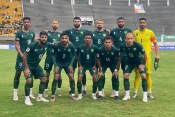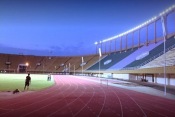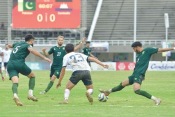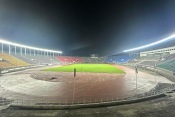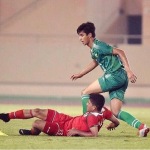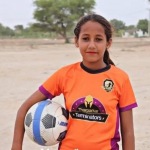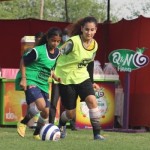No Ramazan tournaments spell disaster for Hazara
This year, coronavirus has taken away that opportunity and the Hazara footballers are feeling the absence of the sport more with every passing day.
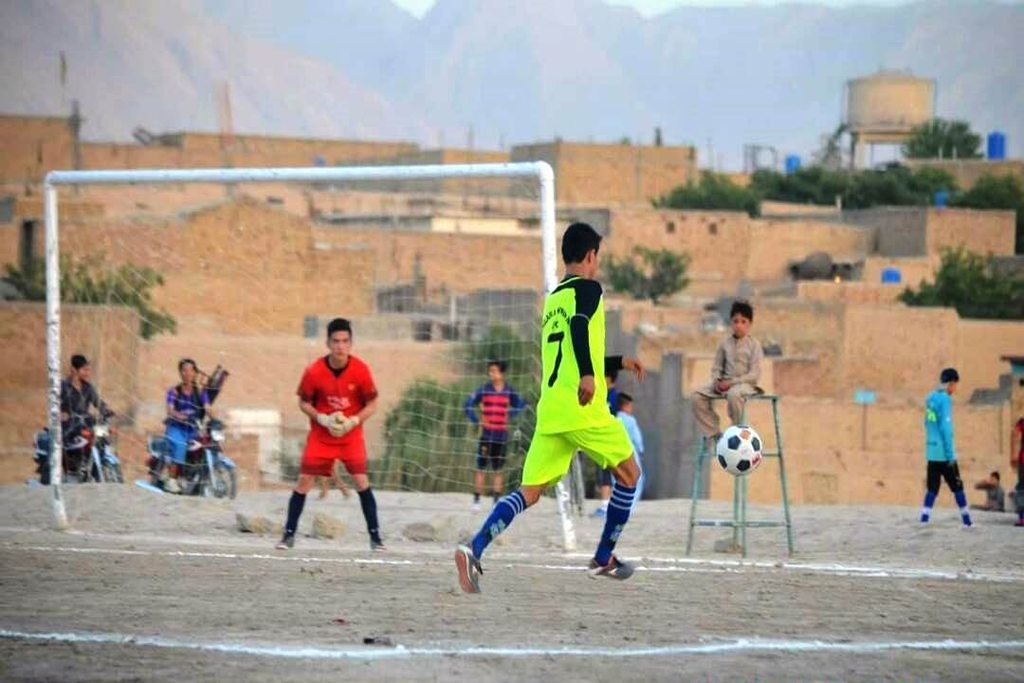
The Hazaras have been a springy community and in Ramadan, they have always proved their strength as people through the love of football, despite being one of the most affected communities from sectarian violence.
This year, coronavirus has taken away that opportunity and the Hazara footballers are feeling the absence of the sport more with every passing day.
In Quetta, around this time last year, there was the Ramazan tournament taking place at the Ali Qayyum Changezi Stadium where the teams from Quetta and specifically from Hazara community would play their hearts in front of a packed venue, but this year the footballers are struggling.
Pakistan’s former international player, Zakir Hussain, who represented the country at the 1986 Asian Games and began his career for Pakistan in 1984-85, believes that his legendary club Hazara FC Quetta, that also hosted Quaid-i-Azam Mohammad Ali Jinnah and Fatimah Jinnah to the matches has to survive through tough times like the Covid-19 pandemic.
“Of course the players are worried, they can’t train and we are missing the game badly,” Hussain told The Express Tribune, as he is the coach now for the Hazara FC, the oldest registered club of the region.
“My club is my identity. We have 20-22 boys here and they are proud of the history that we represent.
“We are struggling in these times, with no football, no money and usually the sport would give us the joy no matter how hard the times would get, but now, even that we can’t have because of the pandemic.
“The footballers are badly hurt because most of them are either students or labourers and they needed to play and maybe get prizes from the tournament too.”
Hussain adds that Hazara FC was registered as a club even before the inception of Pakistan in 1937, and the club has produced greats as recently as Ali Bab the player who was a standby for the U19 national team last year.
“The talent is massive, and our club has always given good players. The problem now is that through tournaments, local ones and Ramazan tournaments, we get to see new talent. This talent usually ends up impressing and eventually they get a job at departments, or get picked up for the national team.
“So our goal is to carry on no matter what the circumstances are, but with the pandemic, we have to hold back, we are not training and this is worrisome, however, we want to follow the instructions given by the government in lockdown,” said Hussain, who is 59 years of age now, and got retired from playing in 2002, while he feels proud that Hazara FC has produced more than 50 national and international players since 1954.
“Our very own player Safdar Ali Babu became the first Hazara in 1954 to ever be a part of the national team and he became an icon for the rest to come,” said the former defender.
“Now that I am the coach here, I try to instil the same passion and drive in my players,” he added.
He highlights that Ramazan tournament first took place in Hazara community in the 1985, but then it remained an irregular fixture, however in the last three years from 2017-2019 the players have had the opportunity to play at night in the floodlights at the Ali Qayyum Changezi Stadium.
Hazara FC is in Mari Abad, while the other half of Harzara community is in Hazara Town, and there, Hazara Wadat club is the contrast of what Hazra FC is. The new club was formed in 2016 by a school teacher Syed Ibrar, who feels that in the current situation his players and footballers are suffering endlessly.
He said that there are more than 70 clubs in Mari Abad, but at least 10 are registered. “Where is the package by the government for footballers?” he asks.
Ibrar said that he was initially ridiculed when he was forming his club but after four years and major titles at All-Quetta Football Tournament and titles in Sibi in March his players were looking forward to more action in Ramazan, however, now they are reduced to searching for scrapes in the absence of tournaments.
“We played the semi-final in the Ramazan tournament last year, and even now we wanted to play despite the problems we face like lack of funds, because we are not affiliated with any political party,” explained Ibrar. “My players are young, I make sure that they get help, and now with the pandemic, we are collecting Rs100 per person just to pay the rent of the club.
Some of the footballers are hit badly, financially, and even I have been unemployed since January, but I try. We are suffering, and while the government has announced relief packages for everyone, like the shopkeepers and business community, what about the footballers, we are humble in every way, monetarily too, we don’t have shops, we don’t have jobs or even kits, how are we going to survive?” Ibrar asked earnestly.
He said that during the pandemic, some players tried to train on their own, and snuck outside, but the precautions are necessary.
“The players need to stay fit, of course, they also however, can’t afford to fall ill,” said Ibrar.
He said that although his club has been performing well locally and even dared to travel outside of the community in Sibi, Chaman, Islamabad, Loralai and to Sindh, he finds that somehow the courage of his players is overlooked.
“To register my club, I’ll need Rs400,000 to 500,000. We shouldn’t have to pay this much, but that is how things work here, there is not system, and now with the pandemic, we are most vulnerable,” said Ibrar, who started his club after seeing the greats from his community from yesteryear, learnt the game through playing and watching international football, and then using his club as a platform for youth to keep them away from drugs or politics at times.
“For clubs like ours, I have to make a choice, I can’t sell my players for a campaign of any politician for Rs20,000 or 30,000. Tshe politics is everywhere, but all we are asking is to support the footballers,” urged Ibrar.
Meanwhile, both Ibrar and Hussian agree that football has been a way of life for the community, and sports is one way to get ahead for themselves, and now with the pandemic they are hoping to find help and support in a bigger way.
“People should think about it, the players entertain them, the players also take abuse, the players keep the game alive, and if not this year, then next year we need tournaments and an active system that can empower the talent, instead of pushing them further into obscurity.
“We have no football system for clubs, in Pakistan. The Pakistan Football Federation never established it properly,” rued Ibrar, hoping that his plight might be heard soon.

